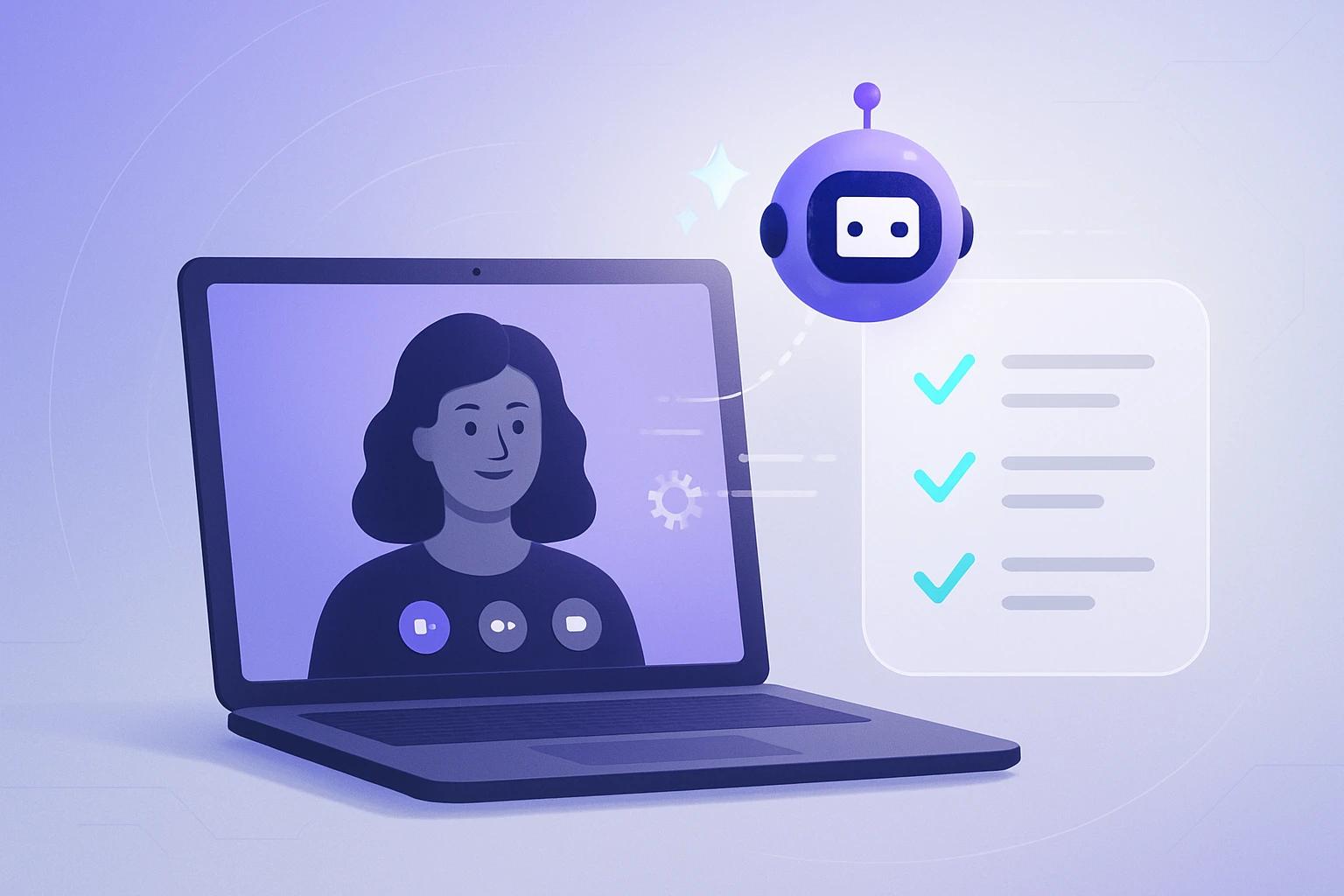
Admin Work Isn’t What You’re Paid For But It’s What Eats Most of Your Time
Replying to routine emails. Summarizing client calls. Formatting invoices. Copying notes into your tracker.
It adds up and it drags your energy down.
This post breaks down how to use lightweight, non-technical AI tools to eliminate the most annoying admin work in your week without hiring help or duct-taping five tools together.
The Goal: Buy Back Time Without Losing Control
AI is useful when it:
- Speeds up work you already know how to do
- Reduces decisions (not just clicks)
- Integrates into your workflow
- Works with your tone, your clients, your tools
This post isn’t about experimenting with 20 tools. It’s about deploying 4–5 AI systems that actually remove admin friction every week.
Use Case 1: Summarizing Client Calls, Fast
If you’re rewatching Looms or re-listening to Zoom, recordings stop.
Use tools like:
- Fathom
- Fireflies
- Scribe
- Otter.ai
What they do:
- Auto-record and transcribe calls
- Extract action items
- Summarize discussions into bullet points
- Send recaps to clients or your internal system
Best part: You can tag by project, keyword, or client and skip writing manual notes.
Use Case 2: Writing or Rewriting Routine Emails
Not every email should take 15 minutes to write.
Use tools like:
- ChatGPT (custom GPTs)
- GrammarlyGo
- Flowrite
- Superhuman AI (for Gmail users)
What to automate:
- Scheduling replies
- FAQ responses
- Polite nudges or follow-ups
- Summary of next steps after a call
- Rewriting for tone (polite, casual, firm)
How to make it sound like you:
- Train it with 3–5 past emails you’ve written
- Add a quick bullet list of what you want to say
Use your actual CTA language: “Let me know if you’d like to move forward” or “Book here when ready”
Use Case 3: Formatting Notes, SOPs, and Docs

If you’re manually typing instructions for your team or clients, AI can help.
Use tools like:
- Tango
- Scribe
- Notion AI
- ChatGPT
Tasks to automate:
- Turn a screen recording into a step-by-step guide
- Convert messy bullet notes into clean SOPs
- Write onboarding docs for repeat processes
- Summarize meeting threads into briefs
This replaces the need for long Looms or Google Docs no one reads.
Use Case 4: Cleaning and Organizing Your CRM or Lead Tracker
Messy trackers = dropped clients. But updating them manually is tedious.
Use tools like:
- ChatGPT (with spreadsheet plugins)
- Rows AI
- Clay
- Notion AI
What AI can do:
- Detect duplicates
- Summarize lead status
- Rewrite lead notes clearly
- Auto-categorize based on keywords
- Flag missing data (no email, no call booked, etc.)
This doesn’t replace your CRM, it improves the data inside it.
Use Case 5: Auto-Tagging and Sorting Content or Tasks

If you run a content engine (blog, newsletter, podcast), you likely:
- Have raw drafts or transcripts
- Need to group by topic or format
- Want to repurpose pieces over time
Use AI to:
- Auto-tag based on content themes
- Score ideas by how often you repeat them
- Turn messy brainstorms into “next post” ideas
- Suggest quotes, tweet hooks, or post formats
Tools that help:
- Notion AI

- Airtable + OpenAI API
- Taplio (for LinkedIn writing)
FeedHive (for Twitter repurposing)
How to Roll This Out in a Week
Don’t try to automate everything on day one. Start with one admin task you’re tired of doing manually.
Here’s a sample rollout:
Day 1 – Install Fathom or Otter for your next Zoom call
Day 2 – Use ChatGPT to rewrite your last client email
Day 3 – Run Tango or Scribe on one repeat task
Day 4 – Use Notion AI to tag your existing content ideas
Day 5 – Clean up your lead tracker with AI assistance
One task per day. You’ll gain 3–5 hours per week by week two
Conclusion: The Right AI Tools Don’t Just Save Time They Save Mental Energy
You don’t need AI to think for you. You need it to:
- Handle repeat tasks
- Draft things you can finish
- Summarize what you don’t want to retype
- Keep your systems clean without effort
The result isn’t just speed, it's clarity. More mental bandwidth for coaching, building, creating, or leading.
Start with what slows you down most. Then replace the routine with something that runs quietly in the background.

Custom video production at scale
Aneeverse covers all video needs whether you're telling your brand story, launching a product or running ads. Discover how we can help you scale.
